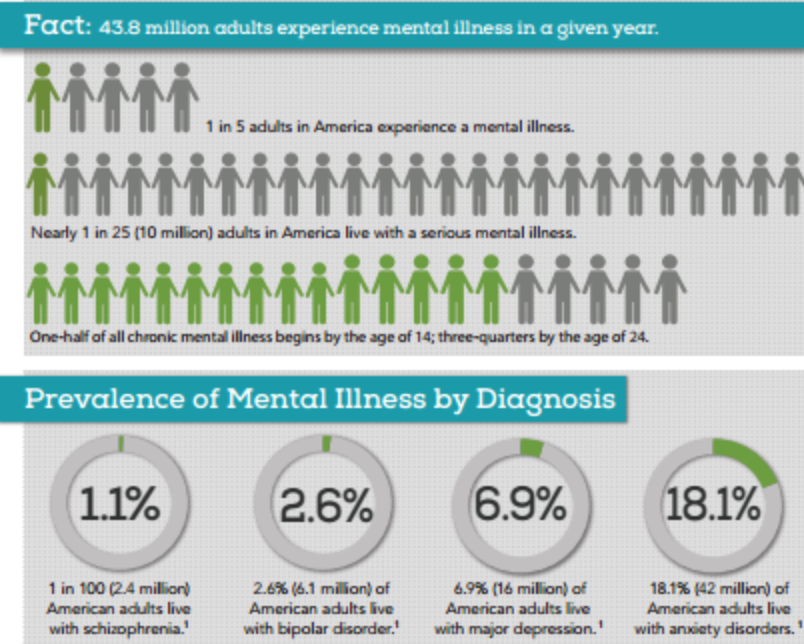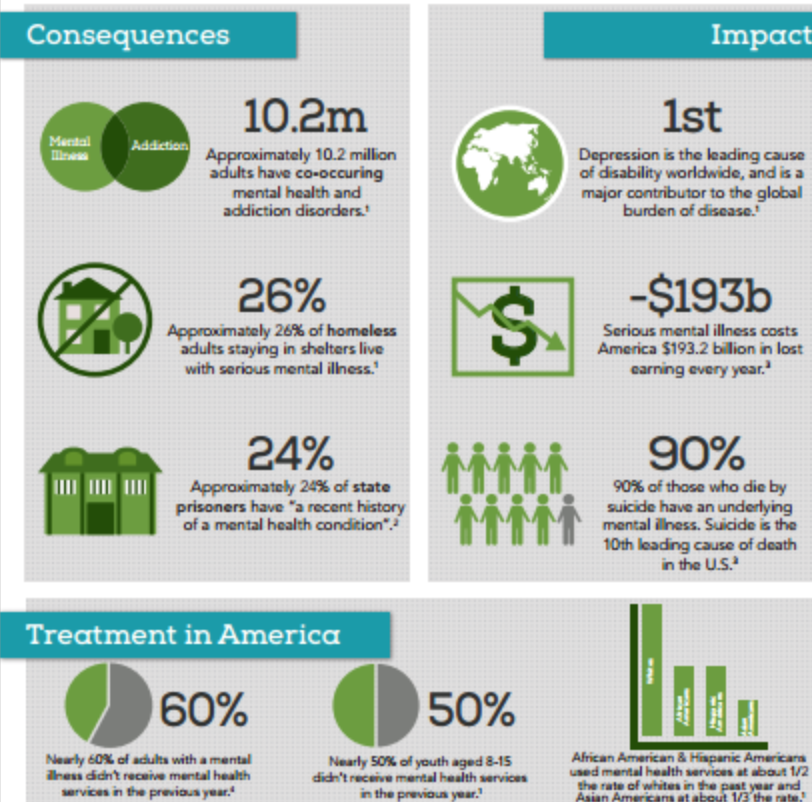Target 'OCD' Sweater Sparks Larger Conversation About Mental Health

By:
As ATTN: previously reported Target and other retailers received an incredible amount of backlash on the Internet, earlier this week, for holiday items that appeared to mock mental health disorders. But whether the backlash was justified or an overreaction, the controversy is providing an opening to discuss the severity of mental health issues and mental health stigmas.
By the numbers.
Currently 1 in 5 Americans have a diagnosable mental disorder and 1 in 25 Americans suffer from a debilitating mental illness that disrupts their daily routines and activities, according to the National Institute of Health.
 National Alliance on Mental Illness - nami.org
National Alliance on Mental Illness - nami.org
 National Alliance on Mental Illness - nami.org
National Alliance on Mental Illness - nami.org
One of the leading causes of death for people with mental health issues is suicide.
The Center for Disease Control and Prevention reported 41,149 suicide deaths in 2013, the most recent data available for suicide deaths. That's six times the number of deaths from HIV, nearly three times the number of homicide deaths, and approximately the same number of deaths as breast cancer in the U.S.
Related: This Comic Perfectly Explains Why Anxiety and Depression Are so Difficult to Fight
Although nearly all mental health disorders have an increased risk of suicide, the most common mental disorders found in people who commit suicide are schizophrenia and other personality disorders, substance abuse, and major depression according to American Foundation for Suicide Prevention.
Besides claiming lives, mental health disorders are also costing countries a fortune.
Health economists at the World Economic Forum estimated that mental health disorders were the largest cost driver at $2.5 trillion in global costs in 2010 according to the National Mental Health Institute. This means that in 2010 the cost of mental health disorders exceeded the cost of diabetes, cancer, and respiratory disorders combined.
But even with the amount of money spent on mental health care, most disorders are not properly addressed, leading to lack of diagnosis and proper treatment.
Related: 4 People Trying to End the Stigma Around Bipolar Disorder
Mental health perception in the U.S.
Although mental illness affects over 40 million Americans, many people are afraid to speak out. According to Psychology Today, people with mental health disorders fear being judged and mislabeled by others.
That is what motivated actress and singer Demi Lovato to open up about her battle with bipolar disorder and addiction.
Currently Lovato is the spokesperson for the initiative Be Vocal: Speak Up For Mental Health which encourages people to speak more openly about mental health.
In an interview with Women's Health Magazine, Lovato explained her decision.
"It's passion of mine—mental health advocacy—and I've decided to partner up with Be Vocal because it is something that is really powerful when it comes to not only informing people about what mental illness is, but also what you can do to help."
